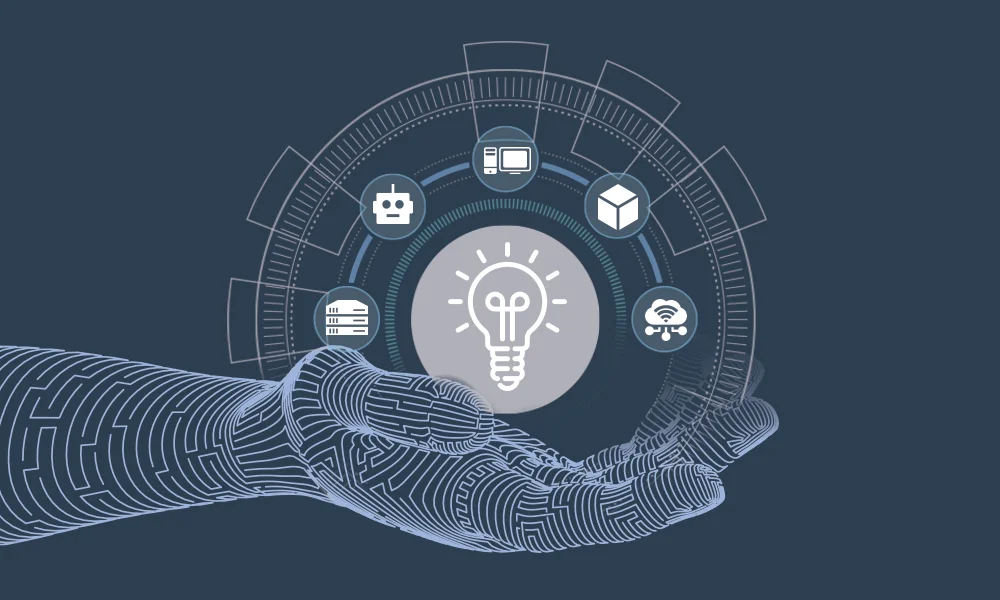The Top 10 Emerging Technologies to Watch in 2023
The Top 10 Emerging Technologies to Watch in 2023
The world is constantly changing, and technology is at the forefront of that change. Every year, new technologies emerge that have the potential to revolutionize the way we live, work, and interact with the world around us. In 2023, we can expect to see the emergence of some truly exciting and transformative technologies. Here are the top 10 emerging technologies to watch in 2023.

- Quantum Computing
Quantum computing has been on the horizon for years, but in 2023, we can expect to see significant advancements in this area. Quantum computers have the potential to solve complex problems that traditional computers simply cannot handle, and they could have a profound impact on fields like finance, cryptography, and drug discovery.
- Augmented Reality
Augmented reality (AR) has been gaining popularity in recent years, but in 2023, it’s expected to reach new heights. AR technology allows digital objects to be overlaid onto the real world, creating immersive experiences that have the potential to transform everything from education to entertainment.
- Digital Twins
Digital twins are virtual replicas of physical objects, and they’re becoming increasingly common in fields like manufacturing and engineering. In 2023, we can expect to see even more widespread use of digital twins, as they offer a range of benefits, including reduced costs, improved efficiency, and the ability to simulate and test products before they’re built.
- Bioplastics
As concerns over the environmental impact of traditional plastics continue to grow, bioplastics are emerging as a viable alternative. Bioplastics are made from renewable resources like corn starch and sugarcane, and they’re biodegradable, which means they won’t linger in the environment for hundreds of years like traditional plastics.
- Blockchain
Blockchain technology has already made a significant impact in the world of finance, but in 2023, it’s expected to expand into new areas, like healthcare and supply chain management. Blockchain offers a secure, transparent way to store and share data, and it has the potential to revolutionize a range of industries.
- Artificial Intelligence
Artificial intelligence (AI) is already transforming the way we live and work, but in 2023, we can expect to see even more advanced AI systems emerge. From self-driving cars to intelligent personal assistants, AI is poised to have a profound impact on the world around us.
- 5G Networks
5G networks are already rolling out in some parts of the world, but in 2023, they’re expected to become much more widespread. 5G networks offer lightning-fast speeds and low latency, which means they have the potential to unlock a range of new applications and services.
- Advanced Robotics
Robots have been a part of manufacturing and industrial processes for years, but in 2023, we can expect to see even more advanced robots emerge. From drones that can perform complex tasks to humanoid robots that can interact with humans, advanced robotics has the potential to transform a range of industries.
- Energy Storage
As renewable energy sources like solar and wind become more prevalent, the need for effective energy storage solutions is becoming increasingly important. In 2023, we can expect to see the emergence of new energy storage technologies that offer improved efficiency, reliability, and affordability.
- Nanotechnology
Nanotechnology involves the manipulation of materials at the atomic and molecular scale, and it has the potential to transform a range of industries, from medicine to electronics. In 2023, we can expect to see significant advancements in this area, as researchers continue to explore the possibilities of this transformative technology.
In conclusion, 2023 is shaping up to be an exciting year for emerging technologies. From quantum computing to nanotechnology, these new technologies have the potential to transform the world around us in profound
ways. As these technologies continue to evolve and mature, they will bring about new opportunities, challenges, and possibilities. It’s important to stay informed and be prepared for the changes that are on the horizon.
Whether you’re an entrepreneur, a technologist, or simply someone who’s interested in the future, these emerging technologies are worth watching. They have the potential to create new markets, transform industries, and change the way we live our lives. As we look ahead to 2023 and beyond, it’s clear that these technologies will play an increasingly important role in shaping the world of tomorrow.
Q: What is quantum computing and how does it work?
A: Quantum computing is a type of computing that uses quantum mechanics to process information. Unlike traditional computers, which use bits to represent information as either 0 or 1, quantum computers use qubits that can represent both 0 and 1 at the same time. This allows quantum computers to perform calculations much faster than traditional computers.
Q: What is augmented reality and how is it used?
A: Augmented reality is a technology that overlays digital objects onto the real world. It’s used in a variety of applications, from education and training to entertainment and advertising. For example, a surgeon might use augmented reality to visualize a patient’s anatomy during surgery, or a marketer might use it to create interactive advertisements that allow customers to try on products virtually.
Q: What are digital twins and how are they used in manufacturing?
A: Digital twins are virtual replicas of physical objects, and they’re used in a variety of industries, including manufacturing. In manufacturing, digital twins are used to simulate and test products before they’re built, which can help reduce costs and improve efficiency. For example, an automobile manufacturer might use a digital twin to simulate a new car design and test its performance before actually building a prototype.
Q: What are bioplastics and why are they important?
A: Bioplastics are plastics that are made from renewable resources like corn starch and sugarcane, and they’re biodegradable. They’re important because traditional plastics have a significant environmental impact, as they can take hundreds of years to decompose and can pollute the environment. Bioplastics offer a more sustainable alternative that can help reduce this impact.
Q: What is blockchain and how is it used in healthcare?
A: Blockchain is a type of technology that allows for secure, transparent storage and sharing of data. In healthcare, blockchain can be used to securely store patient records and other sensitive information. This can help improve patient privacy and data security, as well as streamline processes like insurance claims and medical billing.
Q: What is artificial intelligence and how is it being used in self-driving cars?
A: Artificial intelligence (AI) is a type of technology that allows machines to learn and perform tasks that normally require human intelligence. In self-driving cars, AI is used to interpret data from sensors and cameras, and make decisions about how to drive the car. This allows self-driving cars to navigate safely and efficiently without human intervention.
Q: What are 5G networks and how are they different from previous generations of wireless technology?
A: 5G networks are the next generation of wireless technology, and they offer faster speeds and lower latency than previous generations. This means that they can support more devices and applications, and enable new technologies like augmented reality and virtual reality.
Q: What are advanced robotics and how are they being used in industry?
A: Advanced robotics are robots that are capable of performing complex tasks and interacting with humans. In industry, advanced robotics are used to automate processes like manufacturing and logistics, which can help reduce costs and improve efficiency. For example, a warehouse might use robots to move and sort packages, or a factory might use robots to assemble products.
Q: What are energy storage technologies and why are they important for renewable energy?
A: Energy storage technologies are used to store energy from renewable sources like solar and wind power. They’re important because renewable energy sources can be intermittent, meaning that they don’t always produce energy when it’s needed. Energy storage technologies can help solve this problem by storing excess energy when it’s available and releasing it when it’s needed.
Q: What is nanotechnology and how is it being used in medicine
A: Nanotechnology is the manipulation of materials at the atomic and molecular scale. In medicine, nanotechnology is being used to develop new treatments and therapies, as well as to improve the diagnosis of diseases. For example, researchers are developing nanoparticles that can deliver drugs directly to cancer cells, while others are developing nano sensors that can detect diseases like Alzheimer’s and Parkinson’s at an early stage.
- Quantum computing for finance
- Augmented reality in education
- Digital twins in manufacturing efficiency
- Bioplastics vs traditional plastics
- Blockchain in healthcare data security
- Artificial intelligence in self-driving cars
- 5G networks and virtual reality
- Advanced robotics for warehouse automation
- Energy storage technologies for renewable energy
- Nanotechnology for cancer treatment
The Top 10 Emerging Technologies to Watch in 2023

